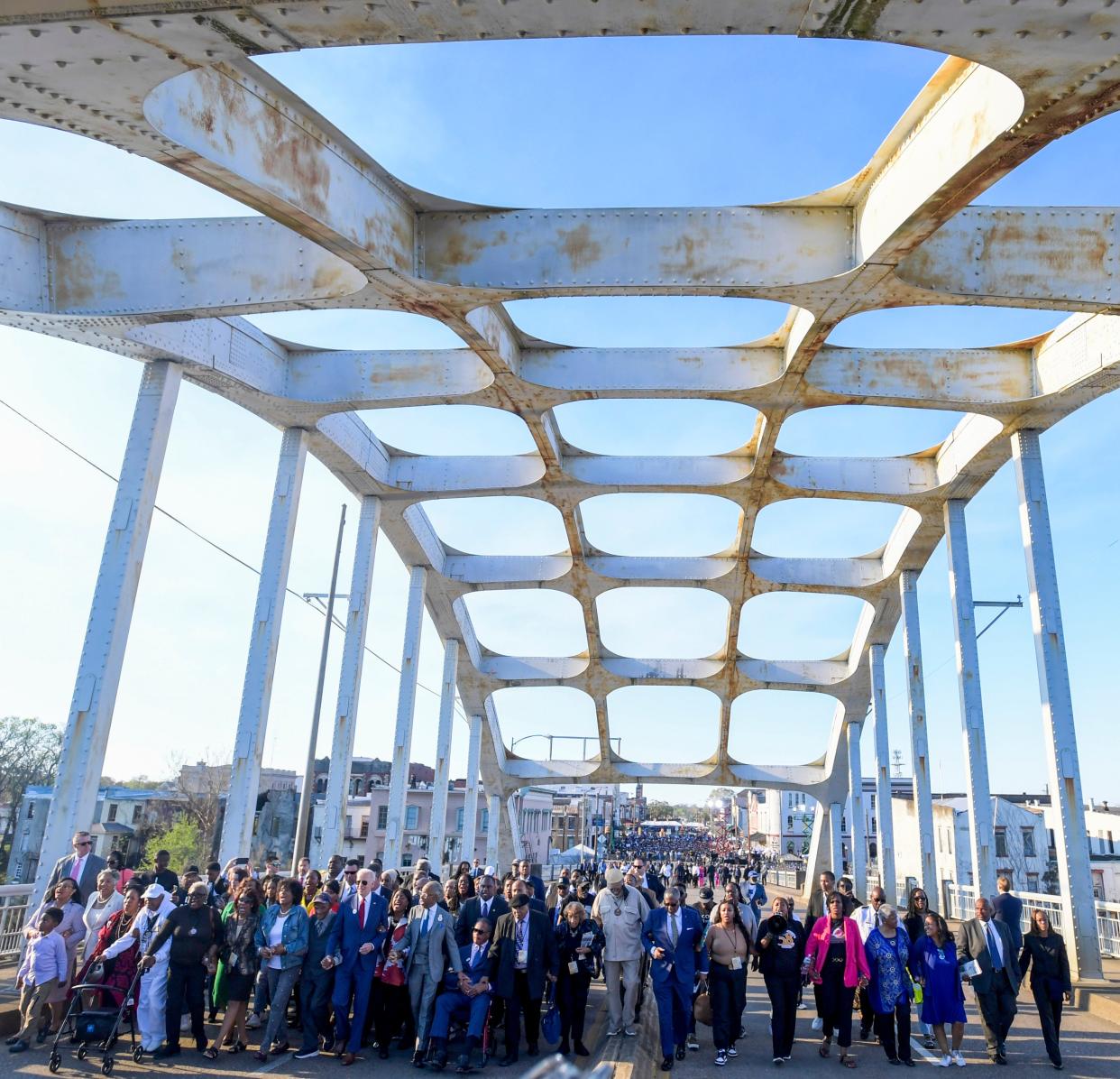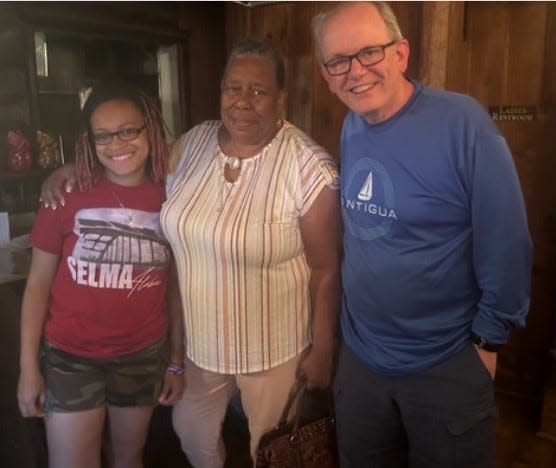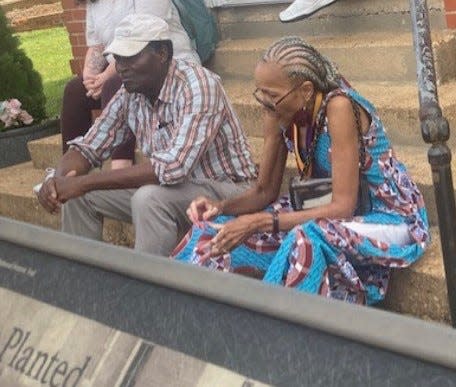NEH program in Selma, Alabama on civil rights movement was life-changing, attendee says

This summer, I had the privilege of being chosen to attend a National Endowment for the Humanities Landmarks of American History and Culture teachers' seminar, traveling to Selma and Montgomery, Alabama, to learn more about what led up to the famous civil rights march that Martin Luther King Jr. led between those cities from March 21-25, 1965.
Other seminars took place throughout the nation, such as one at the Heart Mountain World War II Japanese American confinement camp in Wyoming; racialized spaces on Route 66 in Flagstaff, Arizona; and the democratization of the U.S. auto industry in Indianapolis, among others.
NEH Landmarks are one-week workshop programs that occur in the place where history occurred to better show the what, why and how of history, rather than just utilizing a text.
In Selma, we spent time at Selma University, an historic Black college whose purpose is to educate prospective African American ministers in careers which supplement their pastorate. We explored the neighborhoods surrounding Selma to understand the experience of the people directly rather than merely walking the Edmund Pettus Bridge, which is impactful, but not as experiential.

In terms of classroom utilization from what we learned, the speakers and organizers from Auburn University utilized the method of storytelling and interviewing people in terms of how to ask questions and obtaining “living” history from people in Selma as well as one’s own family and community. We focused on the places where history took place, taking the time to reflect on what occurred in Selma and Marion, Alabama, the violent opposition by whites to Black voting rights and the sacrifices people paid — beatings with police billy clubs, joltings with cattle prodders, being knocked over by fire hoses turned full force, and the shooting death of Jimmie Lee Jackson by a state trooper — to obtain their right to vote.
The stories of civil rights foot soldiers like Tommie Bryant and Della Mae Simpson Maynor of Marion, Alabama; the students and descendants of the privately run African American Lincoln School, which Coretta Scott King, wife of the slain civil rights leader, and Andrew Young, an aide to MLK Jr. and former executive director of the Southern Christian Leadership Conference, attended; and Joanne Bland, one of the civil rights foot soldiers who was arrested 13 times by the time she was 11, were extremely moving and also helped show that “the March still continues.”

In the near future, I hope to do a variety of things to promote racial reconciliation as was learned through this seminar. I hope to help organize a civil rights bus tour of the South in which attendees can talk to foot soldiers of the civil rights movement themselves. These were everyday people who were the impetus behind the movement for Black voting rights and made it happen.
The seminar showed how every person is important. Every person is a piece of the puzzle toward social justice and in making an equitable school system for ALL children. I hope to also conduct speaking engagements myself and also bring foot soldiers in to speak through live and Zoom calls.
If anyone is interested in attending one of the NEH teacher seminars, the information about them usually comes out in late November or early December each year and can be found at neh.gov under "Professional Development." You do not need to be a social studies teacher to attend — all teaching disciplines are accepted. I guarantee that you will not be disappointed attending one of these life-changing experiences.
Chuck Steinbower is a teacher with the Educational Service Center of Central Ohio. He is a former Newark resident who now lives in Columbus.
This article originally appeared on The Columbus Dispatch: NEH seminar focuses on where history happened, says Chuck Steinbower

